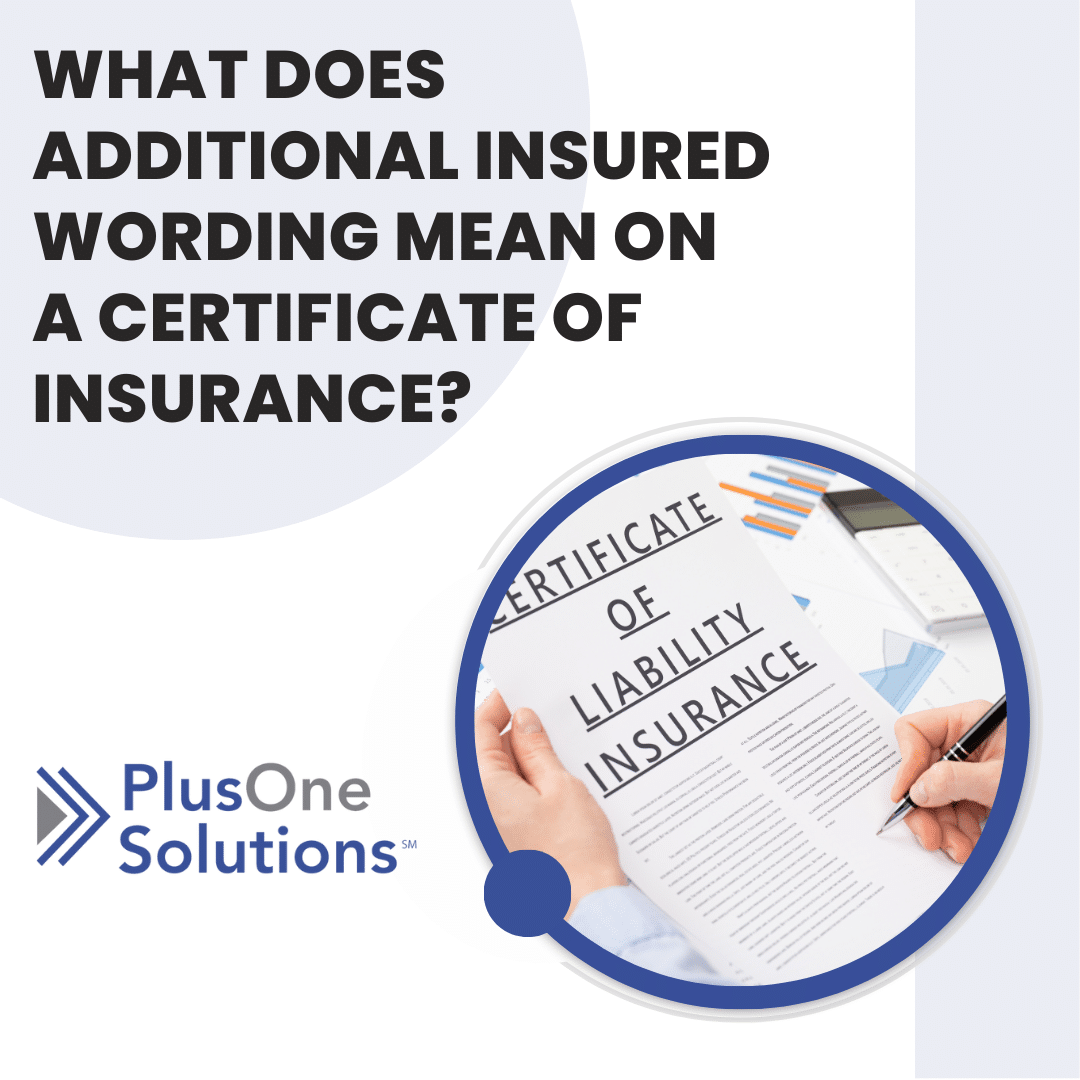Call Us Today (877) 943-0100
What Does Additional Insured Wording Mean on a Certificate of Insurance?
COI Management | July 20, 2023
When an organization enters into a business arrangement or contract with another party – for example, when the organization engages a contracted servicing company to deliver, install or repair its products – obtaining proof of insurance is an important risk mitigation step. This evidence of insurance is typically obtained by asking the organization, or their insuring agent, to provide a copy of their certificate of insurance (COI). Once the organization has this COI, the next step should be to review the contents of the COI to ensure that the coverage meets the requirements of the contract.
What Does Additional Insured Wording Mean on a Certificate of Insurance?
If you’ve ever found yourself asking, ‘What does additional insured wording mean on a certificate of insurance?’ our experts have the answer. This blog will cover one specific requirement that may be seen on a COI – additional insured wording. This language is considered an endorsement that is optional on COIs and refers to the fact that a party other than the original policyholder is requesting to be included in the insurance coverage of the insurance policy. For example, this would occur if you ask for your organization to be covered in addition to the actual contracting company with whom you are engaging. With this coverage, when a claim arises from the work covered by the contract, both the organization and the contracting company will be covered under the policy.
What does Additional Insured Coverage Do?
When a contracting company names an additional insured on its policy, they are essentially extending that policy to the other organization. This may happen as either primary or non-primary additional insured coverage.
In the case of primary coverage, it means that the insurance policy covering the additional insured will pay out first when there is a claim. If the claim is higher than the limit on the additional insured coverage, then the contracting company’s policy will be applied.
Non-primary coverage means the insurance policy covering the additionally insured organization would only be applied when their coverage has maxed out. In this situation, the additional insured’s policy would be the first place for the claim to be paid. Check the contract requirements and the detailed language therein to determine what type of coverage is being requested.
It is also important to consider whether the protection offered to the additional insured is as comprehensive as the policyholder’s coverage. In some cases, the additional insured coverage may be more limited. The endorsement may only offer coverage for a limited type of liability – for example, vicarious liability and is most often seen associated with general liability insurance.
Summary
COIs can be complex and cumbersome documents, but understanding the options and important differences in the coverage available will ensure you can protect your organization effectively. The use of additional insured language is a very common way to mitigate business risks.
Contents are provided for information purposes only and should not be construed as legal advice. Users are reminded to seek legal counsel with respect to their obligations and use of PlusOne Solutions services.
About PlusOne Solutions
PlusOne Solutions has been an industry leader in the risk management field by specializing in compliance programs that meet the complex challenges of geographically dispersed contractors, vendors, and employee networks. PlusOne Solutions protects companies from possible financial, legal, and reputational risks associated with contractor and vendor relationships while creating safer work environments. To learn more, visit https://www.PlusOneSolutions.net.
To receive these updates directly in your email inbox, sign up for the newsletter. Questions or comments? We want to hear from you.Contractor Background Check Program: Best Practices You Should Be Following
Hiring an employee is not the same as engaging a contractor through...
Read More5 Trade License Tracking Benefits For Your Contractor Network
Licensing is one of those critical areas that can take a back...
Read MoreQuarterly Compliance Update, Q4 2020
Maintaining compliance throughout the pandemic, PBSA chairperson update, data entry for background...
Read More


